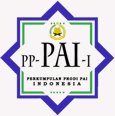Student Religiusity: Lecturers’ Experience in State Islamic University Versus State Public University
Abstract
This study aims to document the experiences of lecturers at State Islamic Religious Colleges (PTKIN) and State Universities (PTUN) regarding student religiosity. Ten lecturers from two PTKIN and nine lecturers from two PTUN became informants for this qualitative research. In-depth interviews were conducted to collect data and analyze it narratively. The results showed that PTKIN lecturers saw that the religiosity of their students was not better than students at PTUN. It turned out that lecturers at PTUN had conducted studies on lecture material from the perspective of the Koran and encouraged their students to explore Islam through activities outside of lectures. Both lecturers at PTKIN and PTUN see that students' religiosity is formed before they go to college, and is influenced by family factors and religious extracurricular activities. The experience of lecturers at PTKIN and PTUN is that community expectations are very high for the religiosity of PTKIN students compared to PTUN students. The superior programs at PTUN need to be imitated by PTKIN such as repairing prayer facilities to increase student religiosity and activating forums for Islamic studies.
Keywords
Full Text:
PDFReferences
Andrew M. Henry. (2021). Religious Literacy in Social Media: A Need for Strategic Amplification, Religion & Education, 48:1, 89-101, DOI: 10.1080/15507394.2021.1876507
Azizah, N. (2015). Perilaku Moral dan Religiusitas Siswa Berlatar Belakang Pendidikan Umum dan Agama. Jurnal Psikologi.
Clandinin, D. J., & Huber, J. (2010). Narrative Inquiry. Dalam P. Peterson, E. Baker, & B. McGaw, (Editor). International Encyclopedia of Education (Edisi ke-3),(him. 436-441). Amsterdam: Elsevier
Diniaty, Amirah, & Annisa Kurniawati.(2014).Students’ Extracurricular Activities in Higher Education and Its Effect on Personal Development and Academic Achievement (Case Study In Islamic State University of Suska Riau). Jurnal Al Taklim. Vol 21 No.3 h. 161-173
Diniaty, Amirah, Risnawati, & Dicki hartanto .(2017). Kompetensi lulusan LPTK Islam dan LPTK Umum menurut Stakeholder. Jurnal Al Ulum Volume 17 Issue 2 h.367-388
Edara, I. R., Del Castillo, F., Ching, G. S., & Del Castillo, C. D. (2021). Religiosity, emotions, resilience, and wellness during the COVID-19 pandemic: A study of Taiwanese university students. International Journal of Environmental Research and Public Health. https://doi.org/10.3390/ijerph18126381
Hebert randy and Friend. (2009). Positive and negative religious coping and well-being in women with breast cancer. Journal of Palliative medicine volume 12, Number 6,2009.
Kanneth, Pargament, Margaret, Fuille & Doonna, Burzy. (2011). The Brief RCOPE: Current Psychometric Status of a Short Measure of Religious Coping. Religious 2011, 2, 51-76.
Khan, M. J. (2014). Construction of Muslim Religiosity Scale. Islamic Studies, 53(1), 67–81.
Komariyah, Nurul Dwi (2018) Perbedaan Religiusitas Antara Mahasiswa Islam Di Perguruan Tinggi Berbasis Agama Dan Perguruan Tinggi Tidak Berbasis Agama. Undergraduate thesis, UNIVERSITAS 17 AGUSTUS 1945.
Nugraheni, P. N. A. (2003). Perbedaan Kecenderungan Gaya Hidup Hedonis Pada Remaja Ditinjau dari Lokasi Tempat Tinggal. Surakarta: Fakultas Psikologi UMS
Pargement, Koenig & Liza. (2000). The Many Method of religious coping: Development and Initial Validation of the R Cope. Journal of Clinical Psychology, Vol.56 (4), 519-543).
Rahmawati, Dwi. (2010). Perbedaan Tingkat Religiusitas pada Mahasiswa Fakultas Keagamaan dan non keagamaan di UIN Syarif Hidayatullah Jakarta. Skripsi: Fakultas Psikologi UIN Syarif Hidayatullah Jakarta.
Riessman, C. K. (2008). Narrative methods for the human sciences. Los Angeles, CA: Sage Publications.
Sheffler, Israel. (1960). The language of education. Springfield: Bannerstone House.
Silahuddin, . (2016) Perbedaan Tingkat Religiusitas Mahasiswa di Perguruan Tinggi Keagamaan Islam Negeri dan Perguruan Tinggi Umum Negeri di Provinsi Aceh Tahun 2016. LP2M UIN Ar-Raniry.
Solichin, M. M., & Muhlis, A. (2020). Correlation between religiosity and student achievement motivation in Islamic education science students. International Journal of Innovation, Creativity, and Change.
Tamami, B. (2019). Dikotomi Pendidikan Agama Islam Dan Pendidikan Umum di Indonesia. TARLIM : Jurnal Pendidikan Agama Islam. https://doi.org/10.32528/tarlim.v2i1.2073
Vosoughi, Sorough, Deb Roy, and Sinan Aral, (2018). “The spread of true and false news online,” Science, 359, no. 6380 (March 2018): 1146–51.
Widodo, H. P., Perfecto, M. R., Canh, L. V., & Buripakdi, A. (2018). Incorporating cultural and moral values into ELT materials in the context of Southeast Asia (SEA). Dalam H. P. Widodo, L. V. Canh, M. R. Perfecto, & A. Buripakdi (Editor). Situating moral and cultural values in ELT materials: The Southeast Asian context, (hlm.1–14). Cham, Switzerland: Springer.
Ybarra, M., Mitchell, K., Finkelhor, D., and Wolak, J. (2007). Internet prevention messages: Targeting the right online behaviors. Archives of Paediatrics & Adolescent Medicine, 161, no. 2: 138-45.
DOI: http://dx.doi.org/10.24014/potensia.v9i1.22474
Refbacks
- There are currently no refbacks.
Copyright (c) 2023 POTENSIA: Jurnal Kependidikan Islam

Potensia: Jurnal Kependidikan Islam
E-ISSN: 2442-5605
Published By:
Fakultas Tarbiyah dan Keguruan Universitas Islam Negeri Sultan Syarif Kasim Riau, Indonesia
Mailing Address:
Jl. H.R Soebrantas Km. 15 No. 155 Kelurahan Simpang Baru Kecamatan Tuah Madani, Pekanbaru, Riau, Indonesia
email: potensia.ftk@uin-suska.ac.id
Indexed By:
POTENSIA: Jurnal Kependidikan Islam is licensed under a Creative Commons Attribution 4.0 International License.

_-_Copyy2_(1)_copy1.jpg)



.jpg)
.png)
.jpg)
.jpg)




